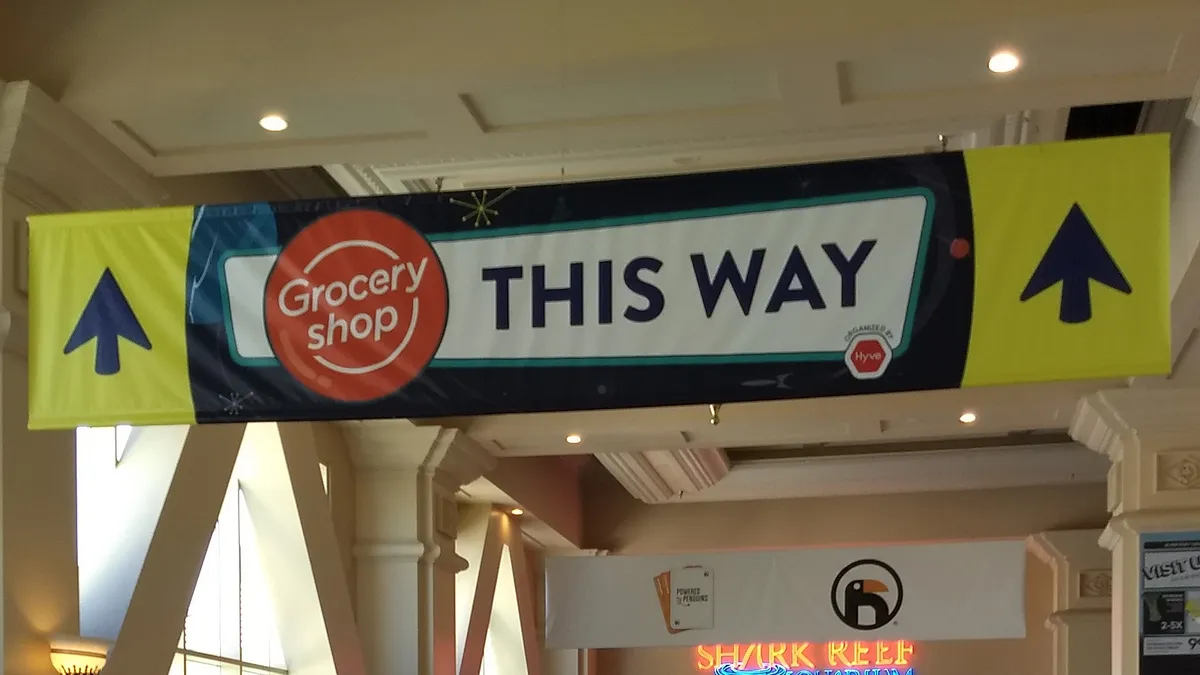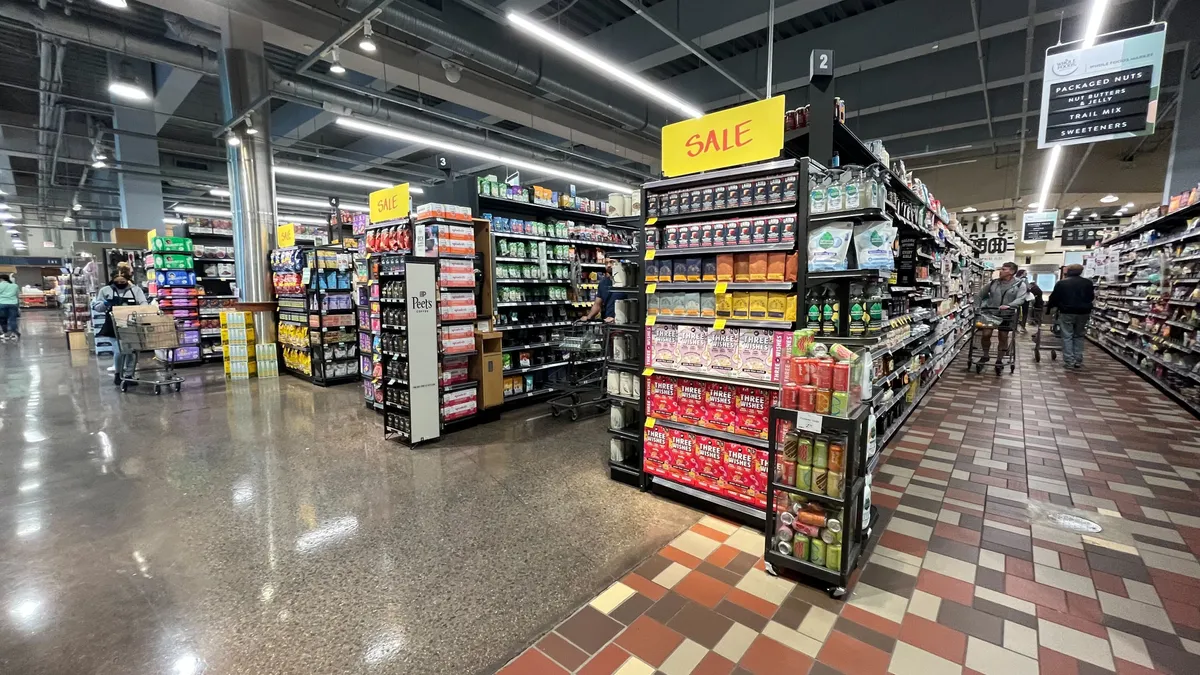Dive Brief:
- Solutions for Retail Brands, or S4RB, a private label solutions provider based in England, announced the expansion of its U.S division and the establishment of Solutions for Retail Brands Inc., according to a company release.
- The company, which works with Sam’s Club and Wal-Mart, provides consulting and software services aimed at bringing together suppliers, retailers and consumers.
- “The US market is the largest private brand market and is facing a multiplicity of challenges, many of which we have already experienced in the UK,” said Kieran Forsey, co-founder of S4RB.
Dive Insight:
Private label sales have grown dramatically in recent years as retailers have developed products that deliver on quality, price and value. According to the Private Label Manufacturers Association, private label sales exceeded $118 billion in 2015, grabbing a 17.7% market share at retail stores.
Top grocers have made private label offerings an integral part of their sales strategy. Kroger’s store brand lineup accounts for more than a quarter of its total sales, or more than $20 billion. One of its most successful brands, the natural and organic line Simple Truth, is fast approaching $2 billion in annual sales. Aldi’s award-winning private label offerings, meanwhile, cover everything from cage-free brown eggs to brioche buns. There’s still plenty of room to grow in this space, as evidenced by the high market share store brands enjoy in Europe, and particularly the U.K.
Everyday products like Waitrose’s “essential” line have proliferated throughout stores and include hundreds of different items. Retailers also are putting out premium lines touting gourmet ingredients and sophisticated packaging and marketing. Marks & Spencer offers store brand Thai soup bowls, detox tea and a range of artisan packaged cheeses.
Overall, private label accounted for 38% of 2015 sales at European retailers, according to market research firm IRI. In England, 52% of store sales are private brands. As in the U.S., fierce competition in the grocery industry has driven store brand growth. That may be the main takeaway in comparing private label offerings on both sides of the Atlantic: They are essential to differentiating stores’ identities and driving growth.
Competition will continue to drive sales in the U.S. In addition to discounters like Aldi and Lidl, Amazon is making an aggressive push into private label with brands like Happy Baby, Wickedly Prime and Mama Bear that offer household goods as well as pantry staples like coffee, tea, nuts and spices.
As Kieran Forsey of Solutions for Retail Brands notes, however, there are plenty of challenges amidst all the growth opportunities. One of these is speed to market. Properly executed, store brands can allow retailers to get ahead of consumer demand and beat mainstream manufacturers to shelves. But product development oftentimes doesn’t happen as quickly as retailers would like. According to a retailer survey conducted by consulting firm EKN Research, getting products to market quickly is the number one challenge grocers face in developing store brands.










